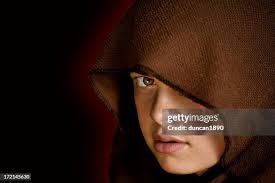The Legacy and Controversies of JK Rowling

Introduction
J.K. Rowling, the British author famous for her Harry Potter series, has become a significant figure in contemporary literature and culture. With over 500 million copies sold across the globe, her work has not only captivated millions of readers but has also sparked numerous discussions on various societal issues. The relevance of Rowling’s contributions and her recent controversies highlight the intersection of literature, social discourse, and public perception.
Achievements and Influence
Rowling’s journey began in the early 1990s when she conceived the idea of a boy living in a cupboard under the stairs, which eventually became the foundation for the Harry Potter series. Released between 1997 and 2007, the books have since transformed into a global phenomenon, including films, merchandise, and a theme park at Universal Studios.
Despite her incredible success, Rowling has expanded her literary portfolio, including works for adults like “The Casual Vacancy” and the Cormoran Strike detective series under the pseudonym Robert Galbraith. Her influence extends beyond literature; she has been a philanthropist, donating millions to children’s charities as well as founding her own organization, Volant Charitable Trust.
Controversies and Public Perception
In recent years, Rowling has faced considerable backlash for her comments on gender and sex, leading to accusations of transphobia. Her tweets and essays on transgender issues sparked protests, calls for boycotts, and heated debates among fans and advocacy groups. While many have defended her right to express her views, they have also witnessed a significant divide among her followers, leading to a strong backlash.
Rowling’s controversies raise important questions about the relationship between an author and their audience, the responsibilities of public figures, and how personal beliefs can impact one’s legacy. This ongoing debate highlights the complexity surrounding creative freedom and social responsibility, prompting readers to reflect on their own values.
Conclusion
J.K. Rowling remains a polarizing yet pivotal figure in contemporary culture. Her literary accomplishments have undeniably enriched the lives of millions; however, the controversies surrounding her statements reveal the intricate dynamics of public perception. As society continues to evolve, so too will the discussions about her legacy. Readers and fans must grapple with how to reconcile Rowling’s contributions to literature with her contentious views, ultimately shaping the narrative around her impact in the years to come.









